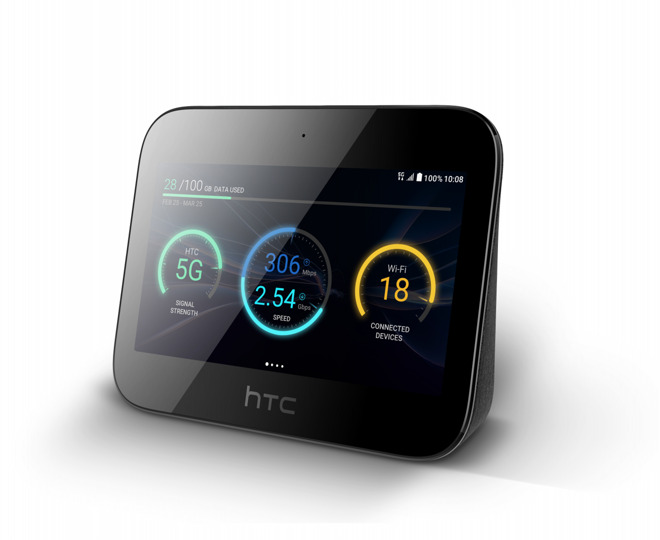New House bill aims to make US more prominent in 5G space, combat China
A new House bill proposed by Texas Republican Rep. Michael McCaul seeks to make the U.S. more prominent in 5G networking -- and specifically to deflect Chinese influence.

If approved, the bill would push the Secretary of State to increase the "representation and leadership" of the U.S. at international telecommunication organizations setting 5G standards. The State Department would have to employ existing funding for the task.
"China's majority control of the world's 5G networks, interconnected devices and cloud storage is a risk we cannot accept," McCaul told Reuters. "We have to show up and compete with them."
The bill is co-sponsored by Democratic Rep. Henry Cuellar, also from Texas.
Chinese firms like Huawei have reportedly sent large contingents to standards body meetings, hoping to establish their own footprint in 5G. The Trump administration has actively opposed this and the use of Chinese 5G infrastructure in general, worried that it could compromise security domestically and abroad. U.S. companies are technically banned from buying Huawei telecoms equipment without special permission.
The Department of Defense issued an April report highlighting not just security concerns, but the possibility of weakened market competition and higher supply chain costs.
In May a bipartisan bill proposed outright banning rural carriers from using Huawei or ZTE equipment for 5G, simultaneously extending as much as $700 million in grants to encourage alternatives. The Rural Wireless Association has argued that real-world costs could end up between $800 million and $1 billion.
Apple is likely keeping an eye on government proceedings as it works toward its first 5G iPhone, expected in 2020. The company is even thought to be developing its own 5G modem, but that may not arrive until 2022.

If approved, the bill would push the Secretary of State to increase the "representation and leadership" of the U.S. at international telecommunication organizations setting 5G standards. The State Department would have to employ existing funding for the task.
"China's majority control of the world's 5G networks, interconnected devices and cloud storage is a risk we cannot accept," McCaul told Reuters. "We have to show up and compete with them."
The bill is co-sponsored by Democratic Rep. Henry Cuellar, also from Texas.
Chinese firms like Huawei have reportedly sent large contingents to standards body meetings, hoping to establish their own footprint in 5G. The Trump administration has actively opposed this and the use of Chinese 5G infrastructure in general, worried that it could compromise security domestically and abroad. U.S. companies are technically banned from buying Huawei telecoms equipment without special permission.
The Department of Defense issued an April report highlighting not just security concerns, but the possibility of weakened market competition and higher supply chain costs.
In May a bipartisan bill proposed outright banning rural carriers from using Huawei or ZTE equipment for 5G, simultaneously extending as much as $700 million in grants to encourage alternatives. The Rural Wireless Association has argued that real-world costs could end up between $800 million and $1 billion.
Apple is likely keeping an eye on government proceedings as it works toward its first 5G iPhone, expected in 2020. The company is even thought to be developing its own 5G modem, but that may not arrive until 2022.

Comments
Now it is trying wild west tactics and doing even more harm to allies as it tries to bully countries into following U.S orders.
There's a basic rundown here:
https://moneymaven.io/mishtalk/economics/uk-philippines-side-with-huawei-why-is-the-us-behind-on-5g-7EP1sCvvGECO1v7CpnxiWg/
Legislating progress...
More seriously, this House bill has little purpose other than to try and "shine a light" on the issue, which will hopefully garner some commitments from US companies. I'm a little unclear on how China's dominance of the makers of 5G equipment is more of a threat than their existing dominance of the makers of existing telecom equipment used by LTE, but certainly there could be more to that than I'm aware of.
America doesn't have net neutrality anymore anyway, so the country is (sadly) in no position to take a leadership role in any aspect of the internet at this point in time.
The strategic miscalculation is not the fault of Trump. The management of the situation is wholly his fault, though and has brought about an abrupt right turn in approach from onlookers worldwide.
As a result, plans are already afoot to drastically reduce dependency on U.S policy and technology specifically.
Therefore, leadership will wane in other areas too and no amount of persuasion from future presidents will radically change anything. The damage has been done and in a major way. To be fair, areas like the EU were already planning a change in course to become more technologically self sufficient. Trump has simply made governments accelerate their plans.
This means that influence via standards committees will also be harder to exercise.
A decade ago there was debate about the U.S wanting to 'control' the internet. Today, it still wants to 'control' things but just doesn't seem to have any scruples about how it achieves its goals.
Time to start 6G planning.
The former benefits America and the American people. The latter benefits politicians.
While we never seem to have money to benefit the country or its people, we always seem to have money for wars.
100 years ago America was being electrified -- but it was focused on heavily populated urban areas and the sparsely populated rural areas were neglected because it just wasn't profitable to string lines out there. But, that was solved by the government's TVA program and all of America got electricity.
Today's cable/internet access are in a similar situation and another TVA authority is needed.